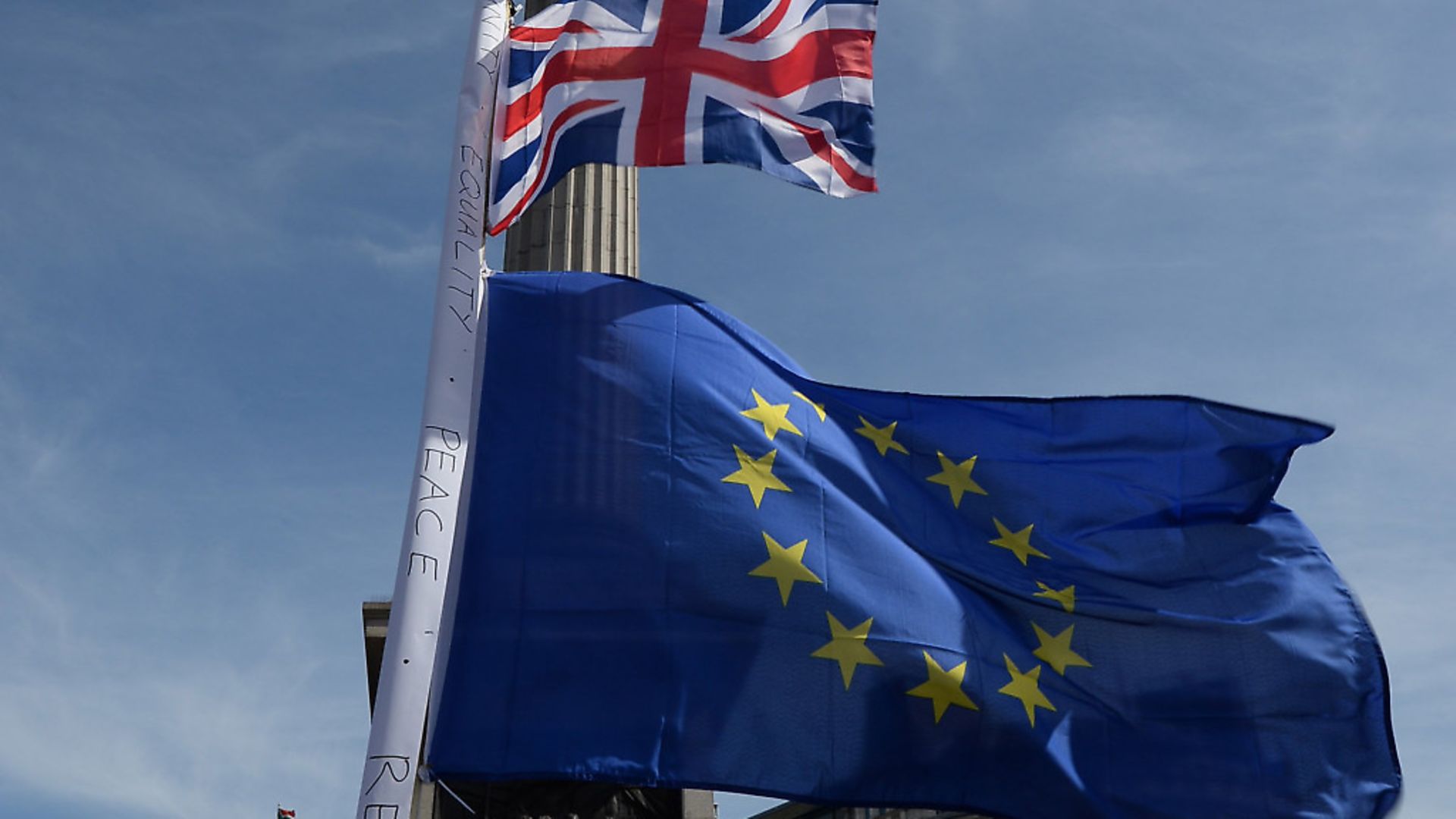
In this week’s Brexit Deconstructed, JAMES BALL reflects on world events and the challenge Britain faces protecting itself post-Brexit.
In the grim aftermath of the Salisbury poisonings, the challenges facing Theresa May – and the UK – in a post-Brexit future on the international stage become all too clear: the UK is simultaneously too big and too small to go it alone, as attempting to tackle Russia is set to reveal.
Some small countries find a way to work on the international stage without being part of major blocs – but they do so by being willing to sit on the sidelines of most major talks, and only try to intervene on issues which directly and dramatically affect them.
On these issues – which they generally hope bigger powers don’t care too much about – they team up with other small nations in a similar position, and push for their inclusion in treaties, UN agreements, or other international deals.
But the UK isn’t a small country, and we do not think like one. Around one in 100 people on the planet live in the UK, and we are the world’s sixth-largest economy. Despite dwindling numbers (and budgets), we still have one of the world’s largest and best-trained militaries, and are – for the moment at least – one of a small handful of nuclear superpowers.
More significantly still, the idea of Britain as a commanding force on the world stage is one which continues to command our national imagination. Within living memory, the UK was still the head of an empire which spanned the globe, and nations far larger than our own. Even during the Second World War, we were a superpower to rival the USA and Soviet Union. A significant portion of our national pride seems still to be reliant on being a major player on the world stage.
Realistically, though, the UK is not in a position to dominate the world stage without international alliances. The leaders of our military admit the UK could not conduct a major war – and likely not even a war on the scale of the Falklands – without the aid of another major ally.
When it comes to economic sanctions, the UK is a small enough market that it could be just about ignored by most superpowers if it acted alone. And despite the skill of diplomats in the foreign office, there’s only so much our soft power can achieve without the backing of others.
So, what do you do when you’re too big to stay on the sidelines, but too small to get your way in your own right? Generally the answer would be to team up with other allies as part of international groupings.
These are not always easy to find. The UK has worked closely with the USA for decades, both through the UN and NATO, and directly through the ‘special relationship’, including on military disasters such as Iraq. But if the US was ever a reliable ally, it is less so now than it used to be. Not only is the Trump administration chaotic to the point of incoherence – as the abrupt firing of Secretary of State Rex Tillerson highlighted – but Trump’s approach to Putin and Russia often clashes markedly with that of the UK, and the American president has refused to sign off on new US sanctions on Russia for several months.
That question mark over the US makes NATO a tricky bet for the UK to secure international action against Russia – which is a shame, as though the UK would be unlikely to call for military action from its NATO allies against Russia, the alliance has proved capable of lesser measures against adversaries in the past. The UK is the second-largest military contributor to NATO, but our contribution is dwarfed by the largest, which is the USA. If the US cannot be relied upon as a direct ally, it cannot be relied upon in the NATO grouping.
Placing hope in the UN is a similarly tough bet: real power in the UN lies in the Security Council, whose five permanent members each have a veto over all new resolutions. Happily for the UK, we have one of those five seats. Less happily, one of the others is held by Russia: so long as that remains true, the UK will never manage to get a serious resolution against Russia through the UN.
That leaves very little left on the table: the UK is faced either with acting alone, expelling a few diplomats – the age-old token gesture to publicly signal disapproval, but a relatively mild rebuke; or else choosing to introduce sanctions against some of the Russian millions flowing into London’s property market, the UK’s private schools, and its luxury fashion shops.
For action beyond that, the UK’s best hope is the EU, where many nations share urgent concerns about Putin’s territorial ambitions and his interference in the politics of Western nations.
As the world’s biggest economic grouping, with several well-prepared militaries and espionage agencies, the EU is perhaps the only grouping able to effectively stand up to Russia, economically if not militarily. However, this is a tough sell: Russia provides about 40% of the gas used by EU nations, and they know the leverage that keeping the lights on brings. Taking action requires a close alliance, close relationships, trust and cooperation – a huge ask from a country currently leaving the EU, and an even bigger ask from a former member.
Our Brexit debate focuses most of the time on what leaving the EU will mean for our pockets and for our prospects. World events provide a unpleasant reminder that we will have to re-learn much else too: how can we protect our critical alliances and interests once we’re out?










